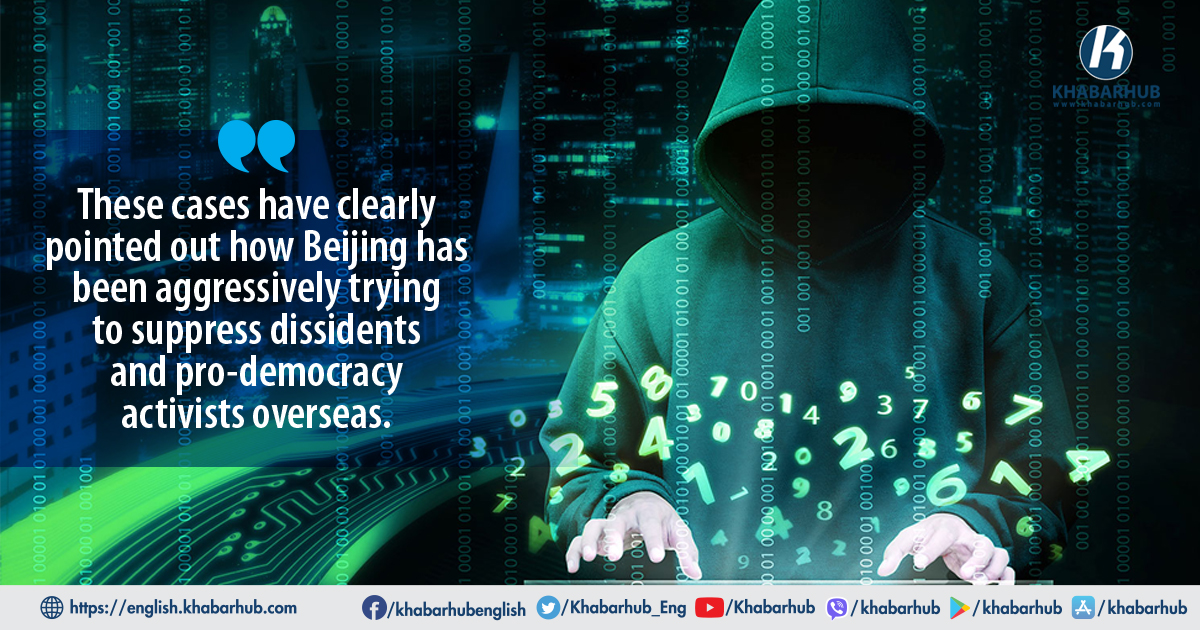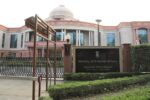In a shocking turn of events, Yuanjun Tang, a former participant in China’s 1989 democracy movement, has been arrested in New York for allegedly working as an unregistered agent of Beijing’s intelligence agency.
Tang, who fled China decades ago and was granted asylum in the United States, is accused of spying on pro-democracy groups in America for the last six years.
This arrest underscores the alarming reach of China’s espionage network in foreign countries, raising serious concerns about the safety and security of activists worldwide. His arrest came nearly a fortnight after Chinese American scholar Shujun Wang, also a well-known democracy activist, was convicted of spying on overseas dissidents for the Chinese government.
Experts have warned that dissident groups around the world, including in Australia, have long been targeted by similar operations, highlighting the global extent of these tactics. However, they also caution against the dangers of “witch-hunts” or the demonization of entire communities, emphasizing the need for measured responses.
Wang held himself out as a critic of the Chinese government so that he could build rapport with people who actually opposed it, then betrayed their trust by telling Beijing what they said and planned, the court heard.
Its agencies must carry out special “counter espionage operations” to “resolutely dig out” and “eliminate traitors”, Chen said in Study Times, the Communist Party school’s official journal.
In April, the German police had arrested a European parliamentary aide for spying for China.
German citizen Guo Jian had visited Dalai Lama and reported sensitive information back to Beijing. He has been accused of spying on Chinese dissidents and overseas activists in Germany. News Reports suggested that he had become familiar with the overseas pro-democracy movement.
According to available information, he had been working for a Chinese intelligence agency, and repeatedly passed the agency information on European Parliament negotiations and decisions in January.
Experts have expressed shock over these incidents. According to article in abc.net.au, Daria Impiombato, a security analyst with the Australian Strategic Policy Institute, said “Chinese dissident groups (both inside and outside China) have been subject to infiltrations for a long time — be that through untrustworthy members of their communities doing the work in person, or accounts infiltrated into WeChat group chats, for example.”
For Wang, she said that his conviction was significant because it was often difficult to prove the Chinese Communist Party’s (CCP) “covert influence, interference and espionage tactics.”
These cases have clearly pointed out how Beijing has been aggressively trying to suppress dissidents and pro-democracy activists overseas.
However, the global community has expressed its deep concern over Beijing’s “long-arm enforcement” of its laws and directives around the world, and its ongoing suppression of overseas dissidents and democracy activists via secret police stations, overseas activities by its intelligence agents and a network of consular volunteers.
According to Canada-based writer and activist Sheng Xue, she has met Guo several times at pro-democracy events, where she noticed he didn’t say much, but spent most of the time observing.
“It was easy for Guo Jian to gain access to these circles where he was hoping to obtain information,” Sheng said.
“He was a director of the Federation for a Democratic China and the secretary-general of the China Republican Party, so he knew all of the details of the people who attended their meetings.” Germany-based rights activist and journalist Su Yutong also said via her X account that Guo had held those posts in the two organizations.
“Guo Jian has been active in the Chinese democratic circle in Germany,” Su wrote in a tweet on April 23. “He has served as a director of the German branch of the Federation for a Democratic China, and as secretary general of an organization called the China Republican Party.”
“In short, people in the democracy movement trusted him a great deal,” she said. “Many well-known democrats have participated in the meetings he helped to prepare.”
Guo’s arrest highlights the global reach of Beijing in targeting dissidents and activists all over the world. “The Chinese Communist Party has put huge effort into bribing and infiltrating the politics, economy, media and academic life of various countries,” she said.
According to BBC, a Taipei court has recently sent to jail eight Taiwanese soldiers for spying on behalf of China in exchange for money. One has been sent to jail for 13 years.
The court found that retired military officers bribed active duty soldiers with as much as 21,900 US dollars to join a spy network.
China sees self-ruled Taiwan as a breakaway province that will eventually be under its control, and has not ruled out the use of force to take the island.Taiwan has flagged Beijing’s growing espionage efforts following the arrests.
In a world increasingly infiltrated by China’s spies, no part of the globe is bereft of their reach.
The Financial Times article reported that in France’s port city, Brest has witnessed a remarkable number of weddings in recent years between female Chinese students and the seamen who work at its naval bases.
Meanwhile, western intelligence agencies and security analysts said Chinese spying activities, particularly those led by its civilian espionage body, the Ministry of State Security, were real.
“Honeypots”, where an agent seeks to romantically entangle their target, are a staple of racy spy thrillers. They are also a marker of how China’s espionage operations have expanded in Europe, culminating recently in a spate of highly public arrests.
“The Chinese are doing more [espionage], and western intelligence are getting better at spotting it,” said Nigel Inkster, a former director of operations at the Secret Intelligence Service, Britain’s foreign intelligence agency, otherwise known as MI6, reported the FT.
But in a rallying call to the country’s spy agencies, Chen Yixin, minister of state security, said China must organise a “powerful offensive”.
Its agencies must carry out special “counter espionage operations” to “resolutely dig out” and “eliminate traitors”, Chen said in Study Times, the Communist Party school’s official journal.
Meanwhile, western intelligence agencies and security analysts said Chinese spying activities, particularly those led by its civilian espionage body, the Ministry of State Security, were real.
It is time for the international agencies to work in coordination to break the Chinese network which runs across the globe.









Comment